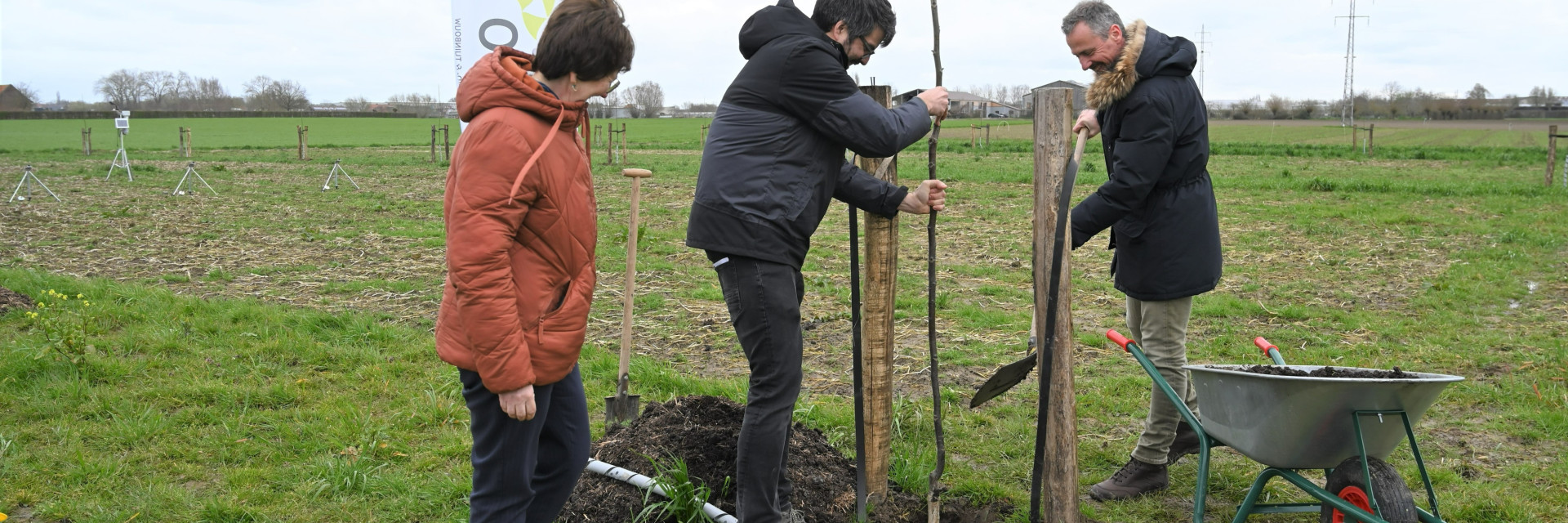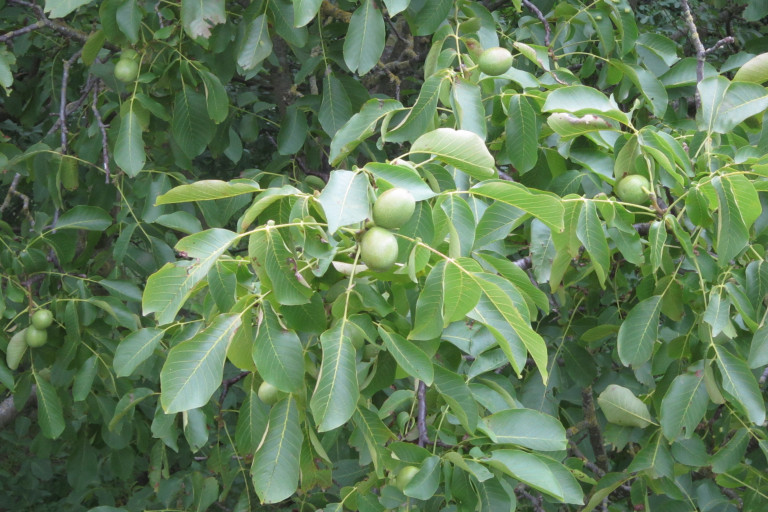
Digging Deeper: Inagro plants its own agroforestry plot

We are in full preparation to plant our own brand new agroforestry plot! This winter, the trees will go into the ground. That’s why we are starting our new series: Digging Deeper. Keep an eye on our newsletter for a monthly update on our plot and follow our journey from the front row. What is agroforestry? Why is Inagro getting into this? And what can it mean for your business? Read about it in this first edition.
What is agroforestry?
Agroforestry or forest agriculture combines the cultivation of trees and shrubs with other agricultural crops or animals on the same plot of land. In this case, the trees and shrubs form a crop and produce fruit, wood, fodder,... At the same time, they also provide a lot of ecosystem services. This way, they are fully part of the earning model.
In almost every land-related agricultural branch, agroforestry offers opportunities. Both on intensive and more extensive farms. Figures for Flanders show that almost as many conventional farmers as organic farmers start with agroforestry. The trees are usually combined with animals or arable farming, but vegetables are also an option.
Need for hands-on experience in Flanders
By now it’s clear that Flanders, and by extension Europe, are labelling agroforestry as a sustainable and climate-robust form of agriculture. Witness to this is the Flemish agroforestry planting subsidy and the place given to agroforestry in the European Green Deal and Farm 2 Fork strategy. Several Flemish organizations, including Inagro, also united in the Consortium Agroforestry Vlaanderen to inform and guide farmers in establishing an agroforestry plot.
Nevertheless, growers remain rather reluctant for the time being and these initiatives have not yet led to the hoped-for increase in the Flemish acreage of agroforestry. A lack of good examples and practical experience in the Flemish context is one of the explanations. Therefore agroforestry is still in a pioneering phase.
Agroforestry & Inagro
Inagro is taking action to elevate agroforestry beyond this pioneering phase. We do this mainly through research and demo. As of next winter, we will also start applying agroforestry in practice on our own Inagro site. Rolling out our own trial plot of agroforestry allows us to study and quantify in detail the long-term impact on cultivation, water management, soil, climate, operations and business economics. It also gives us the opportunity to gain hands-on experience and introduce farmers to agroforestry in the field during demos. This way, we can assist our farmers with targeted agroforestry cultivation advice in the future.
This agroforestry plot is part of the Future Farming Hub at Inagro where system agriculture is at the center.
Advantages of agroforestry
Provided you adopt a smart approach, agroforestry can eventually generate higher yields per hectare than crops only. Any loss of yield between the trees is often largely compensated by the extra income from the trees through fruit, nuts, wood, etc. However with agroforestry, you also have to look beyond the directly generated income on your plot. It’s a system approach by which you invest in the future of your farm and your environment.
Trees provide many additional agricultural, ecological and social services:
- Natural enrichment of nutrients and organic matter in the soil.
- Less leaching of nutrients to surface water.
- Less erosion.
- Increased above- and below-ground carbon storage.
- Increased animal welfare and health.
- Positive impact on biodiversity (including attracting beneficial insects).
- Creation of a recreationally attractive agricultural landscape.







